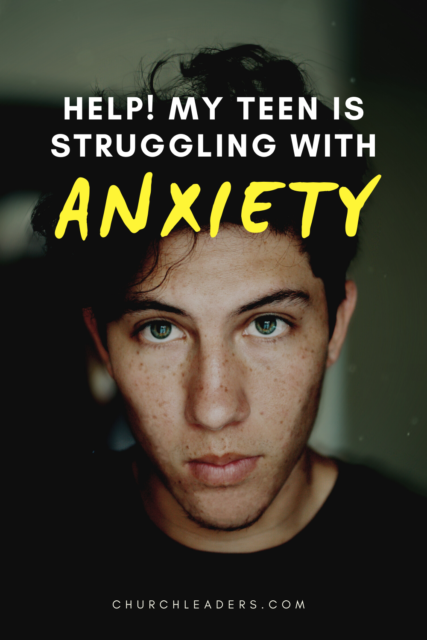2. God Supports Anxious Teens
God doesn’t just understand and sympathize, he also acts to support anxious teens. How does he do this? He does it by listening and by speaking.
Kids with anxiety often feel like no one listens to them, which of course only deepens the anxiety. We therefore want to encourage our kids to speak to God in prayer and sing to God in worship, because God listens to their prayers (Matt. 7:11) and appreciates their worship (Matt. 21:14-16). The fact that God always listens to and appreciates their voices can be used to help our kids express themselves to God honestly. God’s promise to listen to them is a strong support. But there’s another strong support.
God speaks into our kids’ lives through his word (Ps. 34:11-17). We therefore want to encourage our kids to keep reading the Bible and to read it, even just a few verses a day, as if God is speaking to them personally. We need this for ourselves too, and we can help our kids speak to God and listen to God by showing them how we speak and listen to God.
As we and our kids are supported by speaking to our listening God and by listening to our speaking God, we learn how to support one another. We learn how to listen supportively and speak supportively. These supports will stop us and our kids from sinking further and stabilize us for recovery.
“Yes, what about recovery?” you ask. “Understanding and support are great, but can God actually heal my kid, get her up out of this turmoil, and give her peace again?”
3. God Heals Anxious Teens
God sympathizes by understanding, he stabilizes by supporting, then he heals by providing many helpers and many helps. Neither the parents nor the kid are going to recover on their own. All have to reach out for God’s help. The key to rebuilding after anxiety is to use all the helpers and helps God has provided. Here are a few of them.
God Provides Many Helpers
- Pastor: Even if the anxiety is mainly or partly a physical or biological problem, spiritual guidance is still needed. Ask your pastor to help with the child’s spiritual needs. Pastors can pour in the truth of God’s word and pour out their hearts in prayer.
- Counselor: A pastor can do much, but a specialist counselor may also be required to help with more complicated issues. Someone who deals with anxious people all day every day is going to have a lot more experience and expertise than most pastors.
- Doctor: Involving a doctor at an early stage is also advisable as certain medical conditions can cause anxiety. Doctors can also provide a good objective outside assessment of whether your child is getting better or worse.
- Friends: Although anxious teens tend to withdraw, encourage their friends to stay friends and maybe guide them in what to say or not to say. Socializing with those who love them is very therapeutic.
God Provides Many Helps
- Routine: God has made us in such a way that our bodies love routine and thrive when there’s rhythm and regularity in our lives. Try to help your child get into a good sleeping, eating, resting, and working routine.
- Rest: 7-8 hours of sleep a night and a weekly Sabbath are God’s gift to us and our kids (Ps. 127:2; Mark 2:27). Therefore, let’s receive these presents from God’s loving hand and use them to heal.
- Exercise: When we exercise, our bodies expel damaging chemicals and produce healthy ones. Regular exercise gives a sense of well-being and accomplishment.
- Digital downtime: Our brains are susceptible to over-stimulation from digital technology, so deliberate breaks and fasting from devices is usually essential for mental and emotional peace.
- Nature: Jesus points us to nature to heal anxiety (Matt. 6:25-31). A God-centered view of the world is a uniquely powerful therapy.
Let’s help our kids and ourselves by using God’s helpers and God’s helps.
Use God’s understanding, support, and healing to understand, support, and heal your anxious children.
Content adapted from Why is My Teenager Feeling Like This? by David Murray. This article first appeared on Crossway.org; used with permission.


